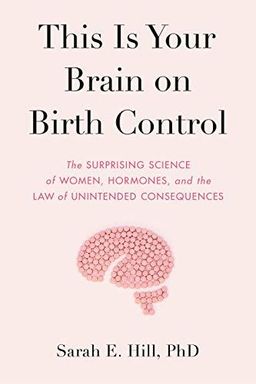Hakkında
Unvan:
Yazar
Okurlar
3 okur okudu.
1 okur okuyacak.
Sözler ve Alıntılar
There are other reasons to consider nineteen or twenty as a minimum age for starting the pill. One has to do with the effects of the pill on depression and suicide risk, both of which are much higher for adolescent women (ages fifteen to nineteen) than women twenty and older. This tells me that the still-developing adolescent brain—in addition to the fact that it’s still developing—might not be well equipped to deal with all the psychological changes that seem to be initiated by the pill. We don’t yet know enough about why the adolescent brain is so sensitive to these changes, and until we do, caution is in order. This is especially true if you have a personal or family history of depression. Your mental health is too big of a deal to leave to chance. It seems like a good idea to consider alternative means of birth control if you are younger than twenty with a family history of mood disorders. No more women should lose their lives from their birth control pills, and the research suggests that taking them at the age of twenty or older is one way to significantly reduce the likelihood of the incredibly tragic outcome of suicide.
One of my graduate students, Hannah Bradshaw, has preliminary results suggesting that this very thing might go on. Across two studies, she found that pill-taking women performed worse than naturally cycling women on a difficult exam and were quicker to give up on unsolvable word puzzles. Although it is as of yet unclear whether these effects are driven by changes in the pill-taking women’s stress responses, hippocampi, or something else altogether, these results are consistent with the idea that the pill may harm the capacity to regulate learning, which could make it more difficult for these women to meet their educational and career goals.
Testosterone actually is a little fickle and capricious. For example, testosterone changes in response to age, the time of day, getting married, having children, the presence of attractive women, the win or loss of a man’s favorite political candidate, the win or loss of his favorite sports team, and (I’m not making this up) the presence of guns. And this is far from an exhaustive list. Men’s testosterone changes all the time.
When compared with naturally cycling women, pill-taking women exhibit less activity in the reward centers of the brain when looking at masculine faces, but more activity in these centers when looking at money.
For example, a major reason that baby boys and girls come into the world with different brains and bodies is that baby boys produce high levels of the male hormone, testosterone, in utero.
Exposure to prenatal testosterone directs the cells in their growing bodies to organize themselves in the ways that we recognize as being male. They tell the reproductive organ cells to build penises and testes, and tell the brain cells to organize themselves in a way that predicts earlier gross motor development but later language stills. In the absence of prenatal testosterone, all babies look and act just like little girls, even when they’re not.
İletiler
Henüz kayıt yok
